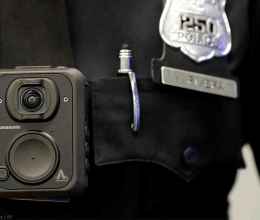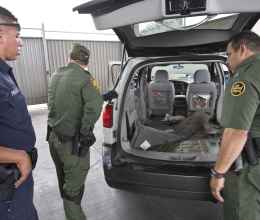By Daisy Vieyra
A few weeks ago, I attended a workshop for community members to learn about California’s new driver’s licenses for immigrants. It was hosted in Atwater, CA, and organized by the Merced Organizing Project (MOP) and Stephanie Kamey, our Central Valley organizer.
I was really excited. I mean, immigrants and advocates fought tirelessly for over two decades to make driver’s licenses for all Californians, regardless of immigration status, a reality. And how can you argue with a law that will help immigrants better integrate into our society and that will also mean more drivers are licensed, tested and insured?
You can’t. But that’s a conversation for another day. Back to my story about the workshop…
At the workshop, I was struck by the number and variety of questions community members had. If I previously had a driver’s license but then it expired and I couldn’t get a new one, do I still need to take the tests again? Where can I pay my traffic tickets? What if someone has a criminal record?
Immigration as a legal issue is so complicated in and of itself. But when you add people’s real-life experiences, it becomes even more so.
So, I think it's worthwhile for us to explore the answer to one of the most complicated questions: Should I apply for an AB 60 license?
It is a personal choice, and it’s important to know what the risks are.
As someone who was left stranded on the side of the road when I was a child with my parents because neither of them had a license, I know the hardships that arise from being an unlicensed driver – car impoundment, hefty fines, missing work because you don’t have your car. The list goes on and can even include being referred to ICE if you’re arrested.
But what would make someone think twice before applying for an AB 60 driver’s license?
The federal government.
You see, law enforcement agencies, including the Department of Homeland Security (DHS) and Immigration and Customs Enforcement (ICE), have access to the DMV database. (Don’t even get me started on the privacy concerns we at the ACLU have about government databases…)
But let me explain how this works.
If ICE is already looking for a specific person and they have that person’s name, then they can submit a request to the DMV to get that person’s name, address, and photo. This doesn’t mean that ICE has unencumbered access to the entire pool of AB 60 applicants. As a matter of fact, they won’t be able to tell who has an AB 60 license and who has a regular license.
But we suggest that if you fall under the Obama Administration’s new enforcement priorities, believe DHS knows your name or if you have any concerns, you contact a trusted and licensed attorney (notarios don’t count) before getting an AB 60 license.
This is where the personal choice comes in. If someone decides to wait and see how this plays out for other people… that is completely up to that person. On the other hand, if someone falls within a grey area or within the aforementioned priorities but decides that the burden of not having a driver’s license outweighs the risks of having one…that is also up to that person to decide.
For our part, the ACLU and members of the Drive California Coalition will continue to urge the DMV to restrict the federal government’s access to its database.
After all, people shouldn’t be afraid of getting deported simply for wanting to drive legally in California.
Daisy Vieyra is a communications strategist at the ACLU of Northern California. Follow ACLU_SoCal.


